The Iten-Barmettler Biscuit Company built a new production facility at 4301 North 30th Street in 1936. The world’s largest baking ovens were installed there, and it was a major employer in the community for decades. The factory was later owned by several companies, including Merchants Biscuit Company, Orchard & Wilhelm, and U.S. Mills. This is a history of a company, a building, and North Omaha’s industrial past.

Building Success in North Omaha
From 1935 to 1940, the Iten-Barmettler Biscuit Company had a large factory in North Omaha. It was September 1935 when the company announced they were going to build a massive modern production plant in North Omaha. Iten-Barmettler, which was incorporated in Delaware, started building the plant in September 1935.
Initially employing 200 people, the plant was led by Otto H. Barmettler (1875-1951) of Omaha. Barmettler had been a company manager for the National Baking Company, then worked for Iten Bakery for several years.
John J. Iten (1862-1921) and his family were bakers in Iowa. His father was a superintendent of Reimers and Fernald Candy and Cracker Factory in Davenport from 1892-1906, and father died, John himself worked for the National Baking Company in Des Moines for a few years. In 1908, he and his brothers opened a bakery at South 13th and Leavenworth. After moving to California in 1918, he died in 1921. At that time, the Iten Biscuit Company was credited for operating the largest exclusive cracker factory west of Chicago, their daily output of crackers “exceeding six carloads.”

Iten’s widow maintained family control of the corporation, and in 1928, supported Barmettler to become president of the Iten Biscuit Company when they merged with the National Baking Company, or NABISCO. In addition to their plant in Omaha, Iten had factories in Clinton, Iowa; Okalahoma City, Oklahoma; and Memphis, Tennessee.
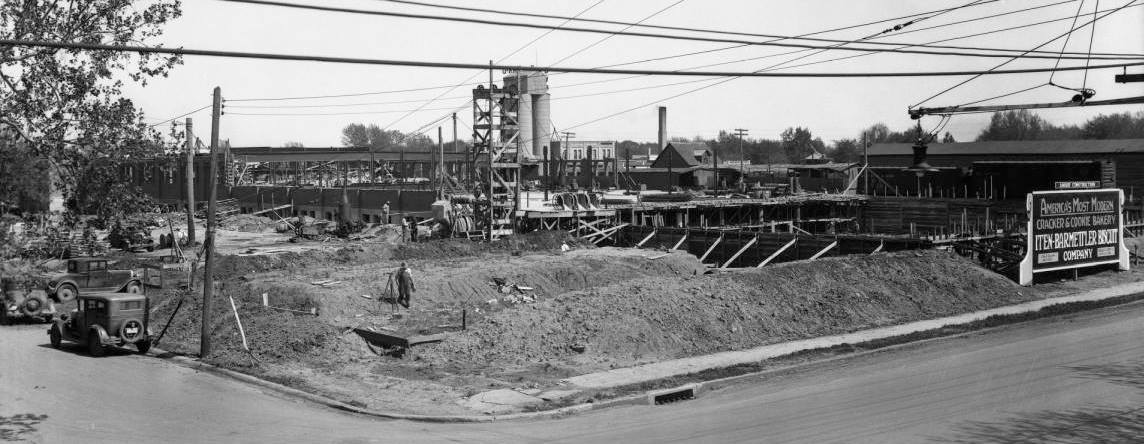
The National Biscuit Company was started in 1898 and was the largest baking company in the world for several years. In 1932 when NABISCO and Iten merged, they employed 25,000 people in 50 bakeries, with 260 branch offices, with approximately 500 varieties of crackers and cookies. The merger was meant to “co-ordinate the business interest of the National Biscuit Company in Nebraska, Iowa, Kansas, Missouri, Oklahoma, Arkansas, and Tennessee and parts of Wyoming, South Dakota, Minnesota, Wisconsin, Illinois, Colorado, New Mexico, Texas, Louisiana, Mississippi, Alabama, Georgia and Kentucky.”
The Iten-Barmettler Biscuit Company was owned by NABISCO, and the new factory was built under the Iten-Barmettler name. The company hiring prolific local architect James T. Allan (1890-1957) to build their new plant at North 30th and Taylor Streets. The Inland Construction Company was the general contractor.
Located next to the Belt Line Railway, which by the 1930s was exclusively for industry, the plant was located near several other industries, as well as the important intersection of North 30th and Ames Avenue. According to an era account, more than 1,000 creosoted pine pilings were used to make the foundation. The most modern machinery was installed in the plant, and the operations were top notch. The company raised more than $300,000 in investments to build the plant. Four acres were included in the land for the plant.
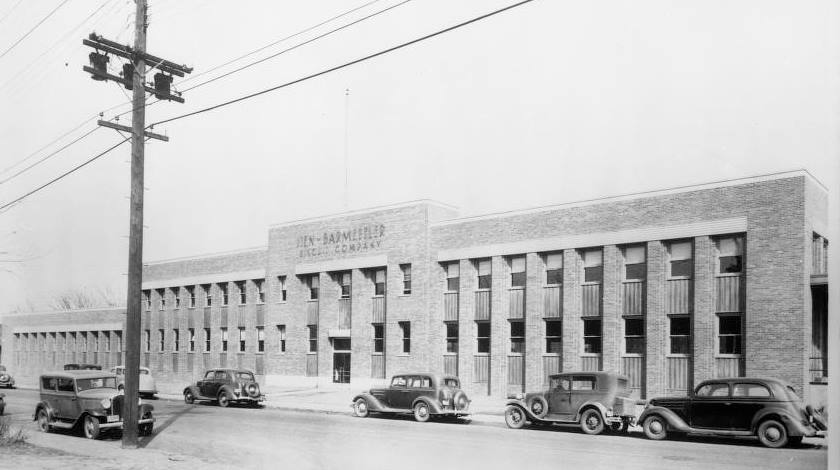
In the late 1930s, the “Iten-Barmettler Man on the Street” promotion made “six history-making broadcasts” with WOW radio. They reached interesting heights when the shows reached the broadest ranges across the Great Plains. The 1939 Works Progress Administration book called Guide to the Cornhusker State reported the “Barmettler trade-mark” was a “familiar emblem in nearly all the Middle West.”
Iten-Barmettler Biscuit Company was there for just 5 years.

Denver’s Merchants Biscuit Company

The cakes, crackers, cookies, wafers were a serious business, filled with mergers and consolidations, buy-outs and other machinations. In 1940, the Merchants Biscuit Company bought the North Omaha plant from NABISCO. Merchants, based out of Denver, was determined to make a stake in Omaha. Hiring hundreds of people over the next several decades, they left a lasting mark on the community.
During World War II and afterwards, Merchant apparently only hired women ages 18-45 to work on the floor. They advertised the work as “light, fascinating work in clean, pleasant surroundings.” After the war, they advertised “Free Coffee, Relief Periods, Convenient Lunch Facilities, Directly On Bus Lines,” along with perks like time and a half, group insurance and more. Their work seemed strictly gender segregated, with a 1947 ad saying packers were hired between ages 16 and 21, and a janitor being “man between 30-50.” These were serious permanent positions that surely helped the entire North Omaha community grow and thrive. In 1955, the plant was seeking to hire a sponge setter was was “a married man, 30 to 45 years of age.”
The company completed an expansion of the plant in 1948. Designed again by James T. Allan, the 20,000 square foot addition was for shipping and warehousing. It cost $150,000. During this time, Merchants was a subsidiary of the United Biscuit Company of America, which was later known by its primary brand, Keeblers. In 1949, the company built another addition to it’s factory.
In February 1949, the first Girl Scouts cookies in the United States were made at the Merchants plant. The company also manufactured a durable biscuit called the “Nebraskit” that was intended for use as a staple of suburban nuclear fallout shelters.
For its entire duration, the company fielded baseball, bowling and basketball teams, and participated in a lot of civic activities. It was a contributing neighbor.
One of the advantages for the company’s location was being located in such a densely packed industrial area. They often used the area’s workers to taste test their latest products, including cookies and crackers, getting great response from the concrete plant workers, the truck plant workers, the furniture factory workers, the tire plant workers, and others in the area.
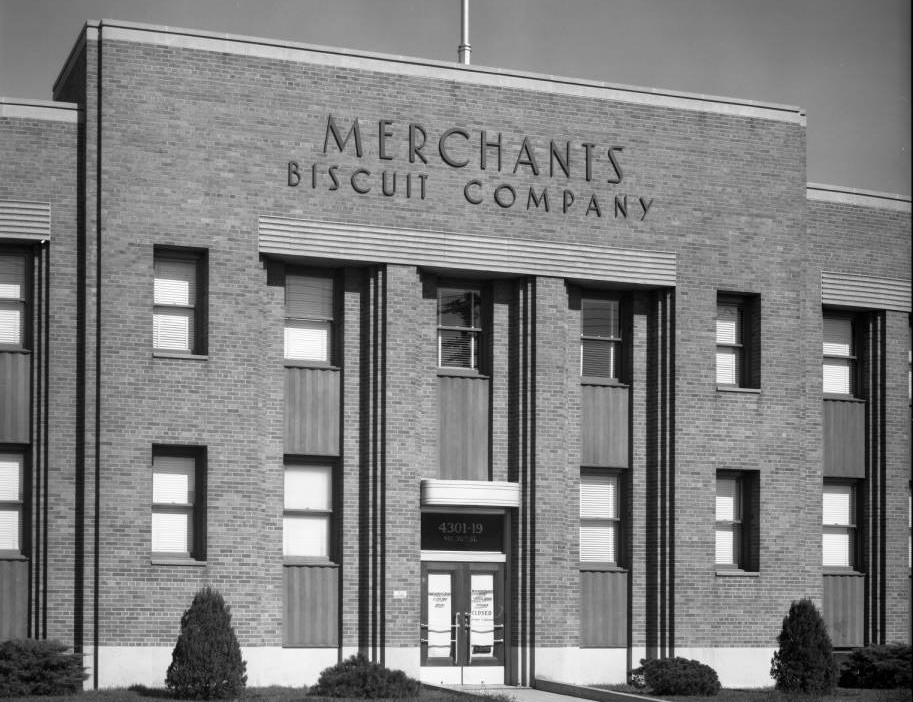
In my research on Merchants and Iten-Barmettler, I found no mention of labor issues at the plant before 1955. In September of that year, there was a walkout by machinists at the plant related to an overtime arrangement. When the plant dishonored that arrangement, a walkout happened. Within a day though, the president of Merchants announced arbitration between management and the workers. The workers were members of the International Association of Machinists.
In March 1962, after 22 years of operation at North 30th and Taylor, Merchants announced the closure of its plant. More than 290 workers lost their jobs, while the sales force of 200 kept theirs. While the company talked about problems expanding at their factory, and other issues with distribution, the government pinned the issue squarely on automation, with an official with the Nebraska State Division of Employment Security being quoted in September 1962 as saying, “Two hundred lost their jobs when Merchants Biscuit closed… because of automation… One hundred of those still are looking for work.”
Merchant Biscuit company was in the factory for 22 years, from 1940 to 1962.
The company created a re-employment program, and workers who’d worked at the plant for more than a year qualified for retirement or severance pay. In June of that year, the newspaper announced a committee was formed among the city’s bakeries to employ the people who’d lost their jobs. In 1963, the Mayor’s Committee on Automation and Re-Employment was complimented for its work to retrain workers who lost their jobs at the factory.
In December 1962, the former Merchants plant went for sale. Zoned industrial, it was described as a 182,000 square foot, two-story concrete building with three elevators, seven loading docks and two blocks of trackage along the Belt Line, complete with air conditioning in the offices and gas heat throughout. It was priced at $650,000.
By 1963, Merchants had built a warehouse in southwest Omaha near the new interstate.
Orchard & Wilhelm Come to North Omaha

That same interstate construction that attracted Merchants to southwest Omaha took the old Orchard and Wilhelm warehouse downtown from that company. With their old building at 5-stories and almost a century old, they looked forward to the new facility. The new space was said to accomodate more trucks for shipping though, as well as provide more trackage for boxcars. The company employed more than 100 people at the warehouse and in the mattress factory. Buying the building in late 1963, the furniture company remodeled the building extensively, including fireproofing the mattress manufacturing section.
Orchard and Wilhelm didn’t survive the 1960s though, went out of business just five years later. They were in the facility from 1963 to 1968.
North Omaha Makes Tools
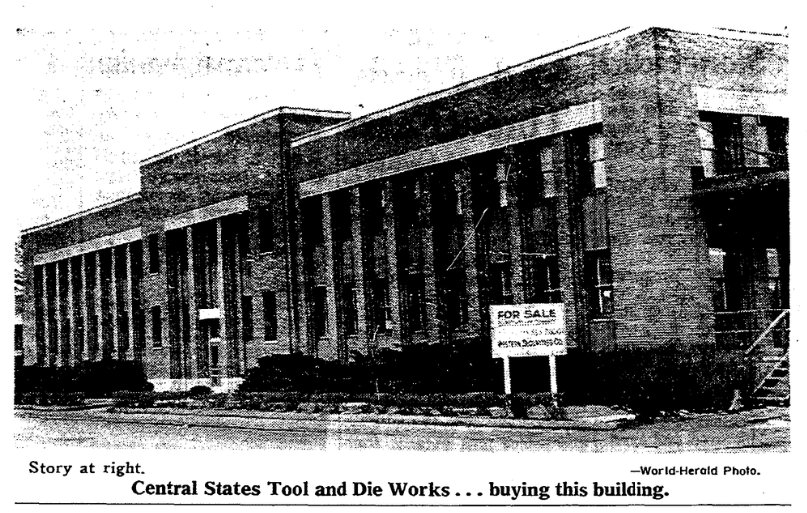
In 1969, a company at North 30th and Saratoga Streets decided to buy the plant, and moved in March to the facility. The company, called Central States Tool and Die Works, paid $600,000 for the building.
Moving from a 24,000 square foot building to the 182,000 square foot building allowed the owner, Ralph Rosnick, to estimate the company would double their production. Its 80 employees made dies and molds for other manufacturers for metal and plastic products. Started in 1948, Rosnick began in a building at North 22nd and Cuming Streets, moving to South 24th in 1951. They moved to 5004 North 30th in 1953.
In 1975, the Central States Tool and Die Works went bankrupt. The operations at 30th and Taylor ended, and the building sat empty. In 1978, the City of Omaha considered buying the property to use as offices for the parks department and the health department, as well as maintenance shops, but dropped the idea.
Uncle Sam Expands

In 1979, the U.S. Mills bought the plant to move from its old space a few blocks away. The space was intended for expanded operations “for years to come,” and had four times as much space as U.S. Mills’ original plant.
In 1999, the U.S. Mills building on North 30th Street was closed by Erewhon, Inc. Located in Needham, Massachusetts, Erewhon took the brand there and continues to operate under the name U.S. Mills. Attune Foods of San Francisco acquired the Uncle Sam Cereal brand name in 2009, and the cereal is still manfactured today.
Omaha Public Schools Buys the Building
In 2000, the Omaha school district bought the building for $950,000. Workers converted the factory into a temporary school, carving out office space, installing plumbing for new bathrooms and repairing the factory’s roof. Almost immediately, classes from Miller Park and Rosehill Elementary Schools were transferred there while those buildings were renovated. That school renovation work has expanded across the district and is ongoing today, almost 20 years later. The old Iten-Barmettler Biscuit Company building is still being used now, and has good prospects for use in the future.
Even though it hasn’t been a job creator for more than two-decades, this facility shows the lifespan of a typical North Omaha place. Over the decades, there’s been so much upheaval throughout the community that it might be refreshing to see one place make it through so much change. Here’s to a successful past and great possibilities for tomorrow…

A Timeline for 4301 North 30th Street
- 1935—The Iten-Barmettler Biscuit Company builds a state-of-the-art plant at 4301 North 30th Street in North Omaha
- 1940—The Merchants Biscuit Company buys the plant and establishes Omaha operations there
- 1948—Merchants expands the facility
- 1949—Merchants expands the facility again
- 1962—Merchants closes the facility
- 1963—Orchard and Wilhelm Furniture Company buys the facility and renovates it for a warehouse and mattress factory
- 1968—Orchard and Wilhelm goes out of business
- 1969—Central States Tool and Die Works buys the facility to expand their operations
- 1975—Central States Tool and Die Works files for bankruptcy and closes the factory
- 1979—U.S. Mills buys the plant to expand their operations
- 1986—Erewhon Inc. acquires U.S. Mills, ending three generations of family ownership
- 1999—Erewhon Inc. closes their North Omaha plant
- 2000—Omaha Public Schools buys the plant for use as temporary classrooms and storage and continues using it for that today
You Might Like…
MY ARTICLES ABOUT THE HISTORY OF FOOD IN NORTH OMAHA
Places: Drive-Ins | Restaurants | Bakeries | Truck Farms
Businesses: Iten-Barmettler Factory | Uncle Sam Breakfast Food Company | Forbes Bakery, Ak-Sar-Ben Bakery, and Royal Bakery
Restaurants: Carter’s Cafe | Fair Deal Cafe | Mister C’s Steakhouse | Parkside Cafe | Jerry and Johnny’s Drive-In | Nite Hawkes Cafe | Hillcrest Mansion | Tic Toc Diner | 24th Street Dairy Queen | Birchwood Club | Skeet’s BBQ | Mama Mac’s Hash House | Beal’s Grill | Off Beat Super Club | Metoyer’s BBQ | Mary’s Chicken Hut | La Rue’s Steak House | Zesto
People: Helen Mahammitt | Jim Bell | Jimmy Jewell | Paul Allen | Alfred Brooks
Related: Social Clubs and Social Halls | Bali-Hi Lounge | Stage II Lounge | Allen’s Showcase | Dreamland Ballroom | Carnation Ballroom | Club Harlem | King Solomon’s Mines |
MY ARTICLES ABOUT THE KENWOOD / HOLY ANGELS NEIGHBORHOOD
STREETS: 30th and Ames Commercial District
BUSINESSES: Beacon Theater | Prairie Park Club | Uncle Sam Breakfast Food Company | Iten-Barmettler Biscuit Company (US Mills) | U.S. Brush Company
NEIGHBORING: Collier Place | Bedford Place | Saratoga Neighborhood | Miller Park | Fort Omaha
OTHER: Holy Angels Parish | Monmouth Park Elementary | Charles Washington Branch Library |
RELATED: Belt Line Railway | North Freeway | Streetcars
MY ARTICLES ABOUT THE BELT LINE RAILWAY IN NORTH OMAHA
Businesses:4402 Florence Blvd | 4426 Florence Blvd | 4225 Florence Blvd | Omaha Casket Company | U.S. Brush Company | Murphy, Wasey and Company Factory | Iten-Barmettler Biscuit Company | Uncle Sam Breakfast Food Company | Storz Brewery | Douglas Motors Corporation
Neighborhoods: Nicholas Street Historic District | Squatter’s Row | Near North Side | North Omaha Bottoms | Sulphur Springs | Saratoga | Bedford Place | Plum Nelly | Clifton Hill | Orchard Hill | Walnut Hill | Military Avenue
Related: Railroads | 30th and Ames | 16th and Locust | 40th and Hamilton
BONUS PICS!






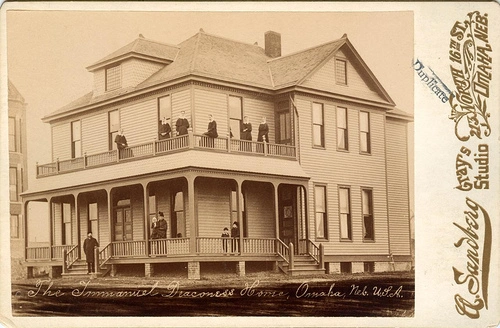

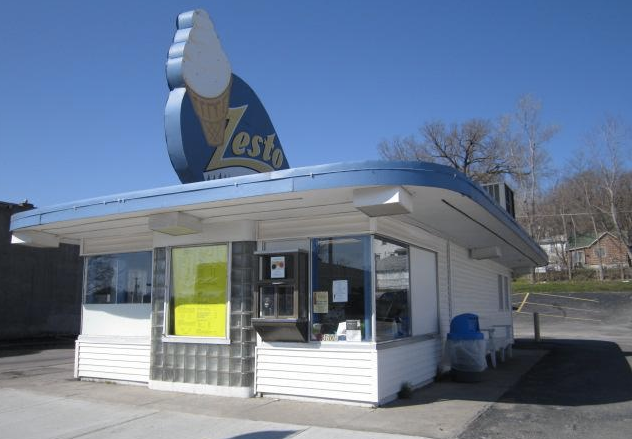
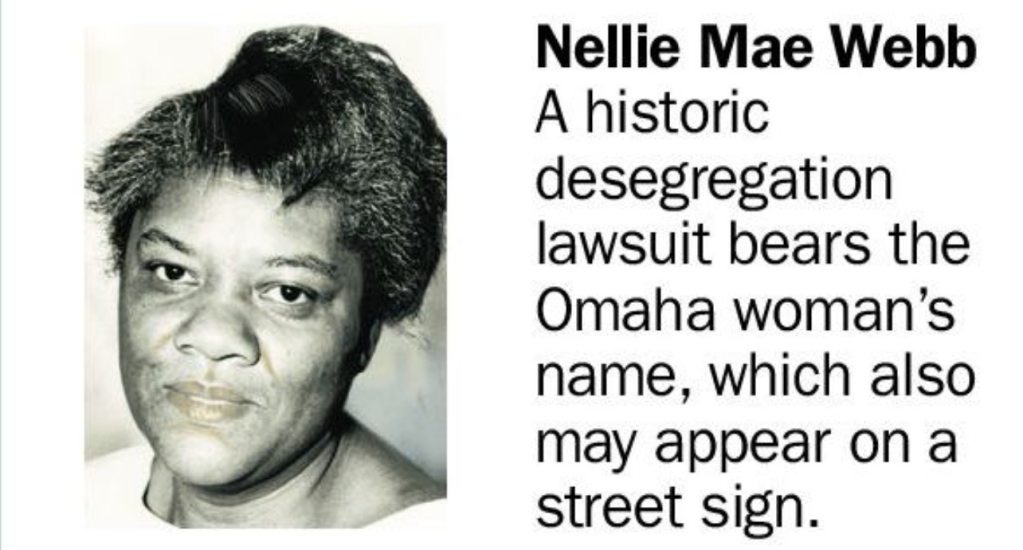
Leave a comment